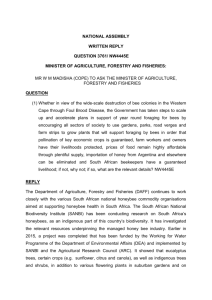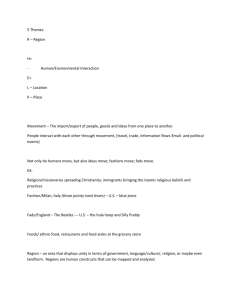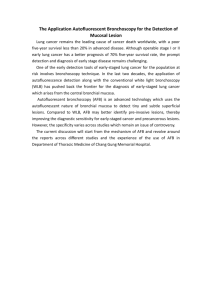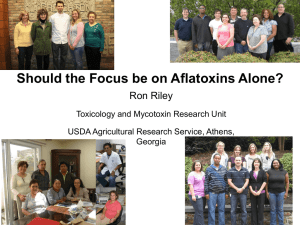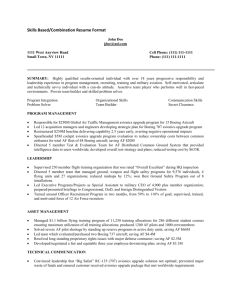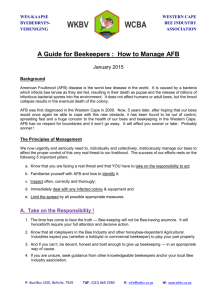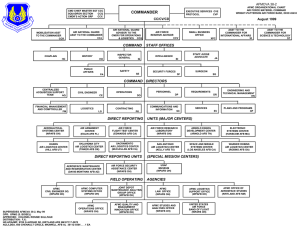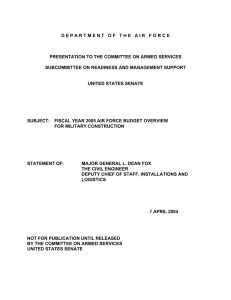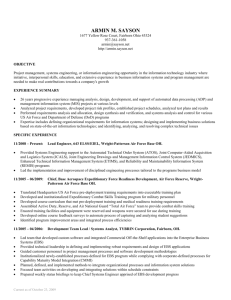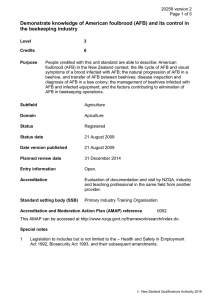(afb) in the western cape - Department of Agriculture
advertisement
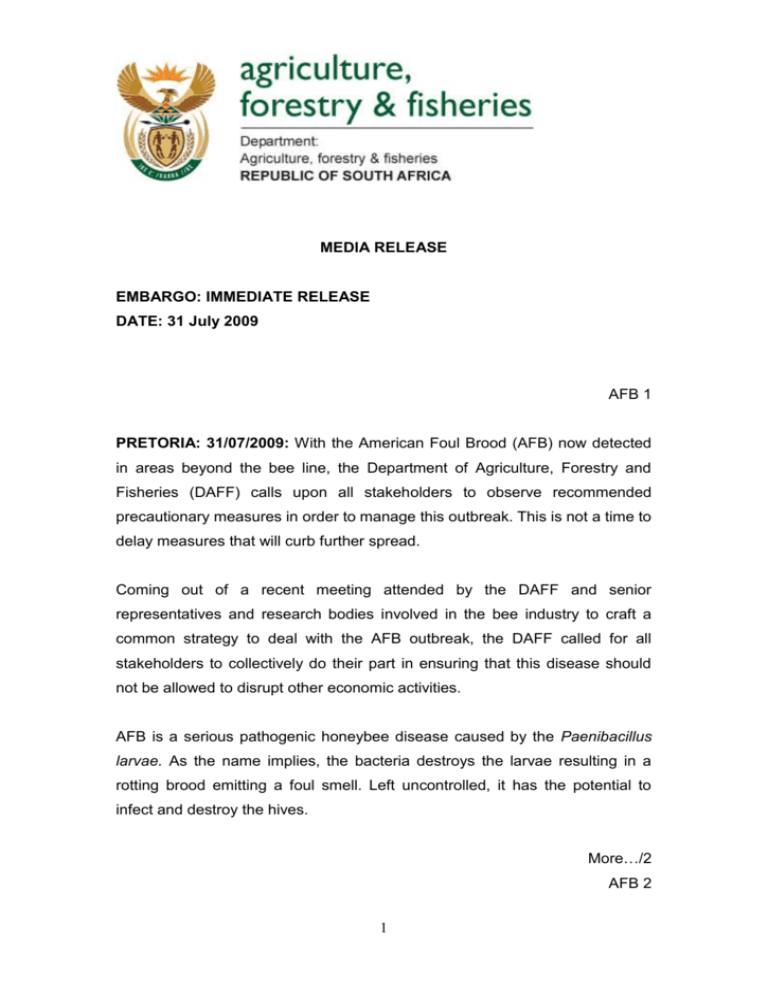
MEDIA RELEASE EMBARGO: IMMEDIATE RELEASE DATE: 31 July 2009 AFB 1 PRETORIA: 31/07/2009: With the American Foul Brood (AFB) now detected in areas beyond the bee line, the Department of Agriculture, Forestry and Fisheries (DAFF) calls upon all stakeholders to observe recommended precautionary measures in order to manage this outbreak. This is not a time to delay measures that will curb further spread. Coming out of a recent meeting attended by the DAFF and senior representatives and research bodies involved in the bee industry to craft a common strategy to deal with the AFB outbreak, the DAFF called for all stakeholders to collectively do their part in ensuring that this disease should not be allowed to disrupt other economic activities. AFB is a serious pathogenic honeybee disease caused by the Paenibacillus larvae. As the name implies, the bacteria destroys the larvae resulting in a rotting brood emitting a foul smell. Left uncontrolled, it has the potential to infect and destroy the hives. More…/2 AFB 2 1 Infected bees spread the infection among other healthy bees in their vicinity. Thus far test samples taken in the delimiting survey revealed a 30 % infection among honeybees south of the beekeeper’s line, where 73 of 258 hives tested AFB positive. The bacteria has been detected north of the AFB free bee line, where 4 out of 24 bulk honey samples were found to be infected. The infected areas in the Western Cape include Bonnievale, Cape Town, Ceres, Durbanville, Fishhoek, Grabouw, Hermanus, Maitland, Milnerton, Montagu, Oudtshoorn, Paarl, Stellenbosch, Uniondale, Vredendal, Wellington and Worcester. It is feared that more areas could test positive as the delimiting survey continues in the next three weeks. Besides honey production, bees are an integral work force in the fruit and other related industries (in the pollination process). To ensure continued pollination bees may be moved around the Western Cape to reach orchards. In view of this outbreak beekeepers are urged to apply stringent management measures as a matter of urgency. This includes inspection of all hives that are moved from apiary sites and the destruction of hives showing clinical symptoms of AFB. From the onset the objective of the delimiting survey is to gather information for decision-making before the pollination season starts in mid August 2009. In considering the long-term effects of the AFB outbreak as well as pollination needs, initially a progressive eradication plan was supported as an ideal priority if this should prove feasible. However, results of the survey show that eradication is not possible on a national level and that a containment and management plan must be implemented. More…/3 AFB 3 2 It is in this regard that forums such as the departmental Operational SteerCo and a policy making body were established to review information obtained from the investigation of the AFB outbreak and to manage it going forward. A series of meetings will continue sitting to monitor this situation closely. The delimiting survey is conducted to determine the geographical extent of the outbreak. Should any outlying infestations be identified, it is envisaged that these may be subject to appropriate containment and destruction. Priority tasks currently underway include finalisation of a bio-security protocol and associated AFB management plan. This will include specific procedural documents, as a collaborative project between the relevant role players. Appropriate regulations designed to support management objectives will be developed and implemented. More than ever, full cooperation of all stakeholders is required in order to control the spread. Government cannot do this alone. Compiled for the department by: Priscilla Tsotso Sehoole Chief Communications Officer Department of Agriculture Tel: 012 319 7017 Fax: 012 319 7858 Mobile: 083 265 8728 E-mail: CCO@nda.agric.za Website: www.nda.agric.za 3 END –
